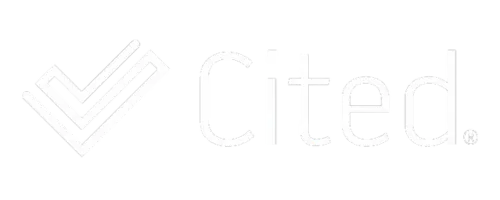The rise and rise of the “gig economy” is creating a variety of challenges for both employers and workers, particularly in terms of workforce compliance.
The employment status of gig workers has been debated in recent legal cases that have highlighted the lack of common understanding about worker status. Companies such as Uber and Deliveroo have faced legal challenges over the definition of their drivers — are they self-employed independent contractors, or are they employees who have rights to traditional entitlements such as holiday pay and sick leave? It’s a grey area.
The gig economy refers to the non-traditional labour market in which people work and provide goods and services through short-term contracts, task-by-task jobs or freelance work, as opposed to permanent work.
But in this economy, where does accountability for compliance lie? Cited helps both organisations and individuals ensure people are checked and cleared for work, no matter their employment status, helping reduce the risks associated with fraudulent identities or invalid credentials.
In the USA, it is estimated that up to 20% of all employed people are in gig work, with the number increasing, and globally 15% of the workforce provides on-demand services.
A variation on gig work is the “side hustle”. Side hustlers have regular day jobs but pursue other work on the side, usually based on their interests or hobbies. The motivations for side hustlers include extra income, the development of new skill sets and the chance to experiment with new business ideas. Side hustlers include bloggers, bookkeepers, dog walkers, music teachers, masseuses, baristas, writers and DJs.
The Guardian wrote of the yin and yang of the gig economy: “To the optimists, it promises a future of empowered entrepreneurs and boundless innovation. To the naysayers, it portends a dystopian future of disenfranchised workers hunting for their next wedge of piecework”.
The growing gig economy and side hustle movement are throwing up significant challenges for consumers and organisations. If a real estate company asks a gig photographer to take photos inside a home, who is liable if items go missing? What if a freelance bookkeeper commits fraud?
Former US Secretary of State Hillary Clinton said: “This on-demand, or so-called gig economy, is creating exciting economies and unleashing innovation. But it is also raising hard questions about workplace protections and what a good job will look like in the future”.
For organisations using gig workers or side hustlers, it is critical that risk mitigation activities are considered. These include demanding individuals are exactly who they say they are, through verifying their identity and background and checking the validity of credentials. Gig workers and side hustlers can increase their marketability by equipping themselves with the relevant checks.
Cited offers a broad range of checks, including National Police Check, Driver’s Licence Check, First Aid Check, Visa Check and Working with Children Check.
Go to Cited to find out more.

